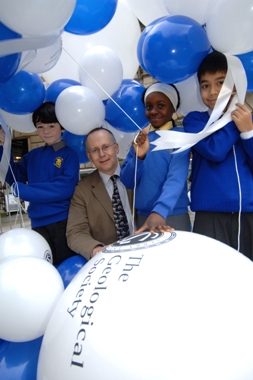All Wrong
 Nearly everything we think we know about the world is wrong. We know this to be true because someone (IPSOS MORI) has taken the trouble to collect data in a public survey. This is called ‘science’, which Richard Feynman described as ‘the best way we know of not fooling ourselves’. Sadly, while scientists might be good at applying it to their own fields, outside them (as I have found over a lifetime observing the species) they are as likely to behave and believe just as irrationally as everyone else.
Nearly everything we think we know about the world is wrong. We know this to be true because someone (IPSOS MORI) has taken the trouble to collect data in a public survey. This is called ‘science’, which Richard Feynman described as ‘the best way we know of not fooling ourselves’. Sadly, while scientists might be good at applying it to their own fields, outside them (as I have found over a lifetime observing the species) they are as likely to behave and believe just as irrationally as everyone else.
As the Society’s new Diversity Champion Tricia Henton points out this month, the Geological Society is lagging behind other scientific and technical bodies in the sophistication and extent of its data collection – particularly where this relates to diversity in the Society, its staff and the profession it represents. At the moment this information vacuum places us in a state little better than that which Lady Bracknell might have characterised as ‘natural ignorance’. To show just how bad natural ignorance can get, we need only look at IPSOS MORI’s recent survey.
The pollsters discovered a massive disconnect between most people’s view of reality and known facts. For example, British citizens think on average that 21% of the UK population is Muslim (actually 5%). And while the true proportion of ‘immigrants’ to these islands is arguably 100%, most people think the proportion of people in the population whom they would class as ‘non-native’ is 24% - (actually 13%). We tend to think that almost a quarter of the population is unemployed, when actually only 7% are. The average guess gives 16% as the proportion of mothers giving birth in their teens, when the truth is only 3%.
Knowledge, or lack of it, is important because it affects the way people vote. Ignorance is a lot more useful in political campaigning than knowledge because it is easily manipulated and produces predictable results in short timescales. Education, on the other hand, produces unpredictable results over timescales that are closer to geological. The BBC may have an explicit mission to educate and inform, but it would be naive to attribute this noble aim to other media, because confirming readers’ prejudices is more lucrative. The existence of such powerful forces goes a long way towards explaining the mismatches revealed by IPSOS MORI.
As a learned scientific and professional society, with an explicit mission to inform, we need to set a better example.
TED NIELD
Editor
@TedNield @geoscientistmag